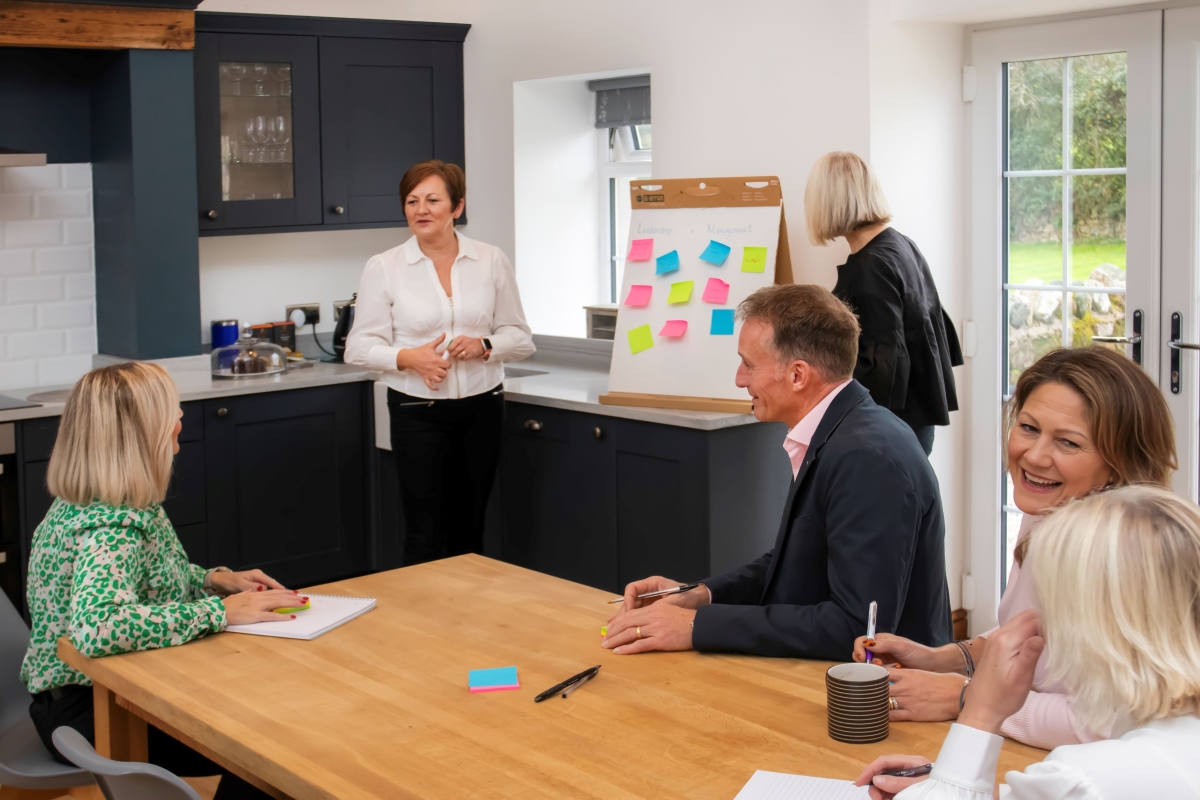A ‘Higher Education Institution’ in Every Community

When his brief was education policy, Michael Gove came across as a sceptic of modern universities. A decade on, after his appointment as the Secretary of State for Levelling Up, he seemed to have undergone a volte-face. When questioned at the 2021 Conservative Party Conference, he implied new higher education institutions should be established to boost more deprived places, ‘such as Doncaster, Grimsby and Thanet.’
For many of us, this belated epiphany was welcome. After all, the difference between a city and a great city is said to be the presence of a university (or two). But, alas, it looks like it was a false dawn.
Positive Language
The Levelling Up White Paper includes some positive language about the capacity of higher education institutions to rejuvenate areas, noting ‘Innovative new models of skills-based HE also have an important role to play in levelling up places.’ It claims ‘the process of becoming an HE provider [has become] more straightforward’ and promises to reduce the obstacles against new institutions even further:
‘The UK Government will continue to work with the OfS [Office for Students] to reform barriers for entry to the English HE sector, so that new high quality HE providers can open across England, joining the 400+ providers already on the register, to increase access to HE particularly in towns and cities without access to this provision.’
Barriers to Entry
Yet this commitment is worth little because it underestimates the current ‘barriers to entry’. It is true that more than 400 institutions are on the OfS’s Register. But the target number for 2021/22 was much higher, at 555 institutions. Of the 418 providers that are on the Register, just 71 are in the ‘Approved’ category, which was designed to help ‘alternative providers’.
That is under half of the predicted number for 2021/22 of 159.
If anything, life under the OfS is harder, not easier, for the sort of innovative provision that the Levelling Up white paper heralds.
After the OfS was established, some of England’s flagship alternative providers – including Regent’s University, the New College of the Humanities and Richmond, The American International University in London – found life so hard they were forced to partner with foreign entities.
In the early months of the OfS, one of the largest alternative providers, GSM London, which successfully educated tens of thousands of disadvantaged students in Greenwich and Greenford, went bust.
The one thing uniting everyone who has tried to get a brand new higher education institution off the ground is that it is much harder than they initially thought it would be. It does not matter if the backers are entrepreneurs, venture capitalists or multinational companies, it remains excessively hard to do.
HEIs and Levelling Up
So progress on the Levelling Up White Paper’s vision of new higher education institutions serving as agents of regeneration had stalled even before the document was published. The key problem now is that the OfS has a long and growing list of priorities and the germination of new higher education institutions remains a long way down its priority list. And the white paper’s complacency about the current situation means no specific proposals are then put forward to improve the situation.
This disappointing picture is at one with the absence of any serious budget to deliver on the White Paper’s other proposals, for serious supply-side activity needs large new capital expenditure. Such funding is unlikely to come from private sources on anything like the scale necessary to build big new institutions because other sectors offer faster and more secure returns to those with money.
So what is the answer if we are to match the white paper’s promise that new higher education institutions will help levelling up?
Recommendation 1
We need to encourage new plant campuses of existing successful institutions, as with the Anglia Ruskin University initiative in Peterborough. As part of this, we should respond positively to the fact that some institutions abroad may also want to deliver more higher education in the UK.
Recommendation 2
We should consider providing some public (capital) funding to ensure there are sufficient places for students all over the country to soak up the growing demand caused by high levels of aspiration, better schooling and a growth in the number of 18-year-olds. If we expect existing institutions to provide all the extra places that we need, many will end up facing the problems that over-large institutions inevitably do, while nothing will be done to deliver levelling up in the parts of the country that currently lack institutions of their own.
Recommendation 3
We need to ensure institutions are incentivised to deliver not just fully-fledged three-year residential degrees but also the sort of short courses, credit-bearing qualifications and different pedagogies that Ministers hope to support through the new Lifelong Loan Entitlement.
Nick Hillman, Director, HEPI
Post-16 Education and Skills: Levelling Up Everyone, Everywhere
Campaign for Learning’s paper Post-16 Education and Skills: Levelling Up Everyone, Everywhere, is a collection of 18 articles and recommendations by leading stakeholders and thinkers across the post-16 education and skills sector.
The paper covers six key considerations for the Levelling Up agenda – national and place based strategies, young people, lifelong training, lifelong learning and post-16 providers.
As the articles show, from the perspective of post-16 education and skills policy, levelling up is about people as well as places – the policy canvas is vast, the perspectives diverse and the insights important.
Together, our authors demonstrate the need for strong, nationally based as well as place based strategies if everyone, everywhere aged 16 and over are to level up through education and skills’
Part 1: Levelling Up and National and Place
- Andy Westwood, Professor of Government Practice, University of Manchester - Levelling Up and the Department for Education
- Sam Freedman, Research Fellow, Institute for Government – Levelling Up and Post-16 Education and Skills
- Fiona Aldridge, Head of Skills Insight, West Midlands Combined Authority – Levelling Up the West Midlands by 2030
- Mark Hilton, Policy Director, London First – Levelling Up London by 2030
Part 2: Levelling Up and Young People
- Geoff Barton, General Secretary, ASCL - Levelling Up and Education: Lots of Stuff but Little Substance
- Sam Tuckett, Senior Researcher, Education Policy Institute – Levelling Up 16-19 Education
- Becci Newton, Director of Public Policy and Research, IES – Levelling Up Participation by 16-18 Year Olds
- Kathleen Henehan, Senior Policy and Research Analyst, Resolution Foundation – Levelling Up 18-24 Year Olds in England
Part 3: Levelling Up and Lifelong Training
- Olly Newton, Executive Director, The Edge Foundation - Placing Vocational Education at the Heart of Levelling Up
- Mandy Crawford-Lee, Chief Executive, UVAC – Higher Technical Education, Higher & Degree Apprenticeships and Levelling Up
- Ewart Keep, Emeritus Professor, University of Oxford – The Role of Employer Training in Levelling Up
Part 4: Levelling Up and Lifelong Learning
- Stephen Evans, Chief Executive, L&W – Levelling Up in England through Lifelong Learning
- Susan Pember, Policy Director, HOLEX – Levelling Up as a Nation of Lifelong Learning
- Simon Parkinson, Chief Executive, WEA – The Future of Adult Learning is in the Hands of Local Leaders
Part 5: Levelling Up and Post-16 Providers
- David Hughes, Chief Executive, Association of Colleges – Well-Funded Colleges to Serve Every Community
- Nick Hillman, Director, HEPI – A ‘Higher Education Institute’ in Every Community
- Chris Hale, Director of Policy, Universities UK – Levelling Up and Widening Participation into Higher Education
- Jane Hickie, Chief Executive, AELP – Levelling Up is as much about People as Places











Responses